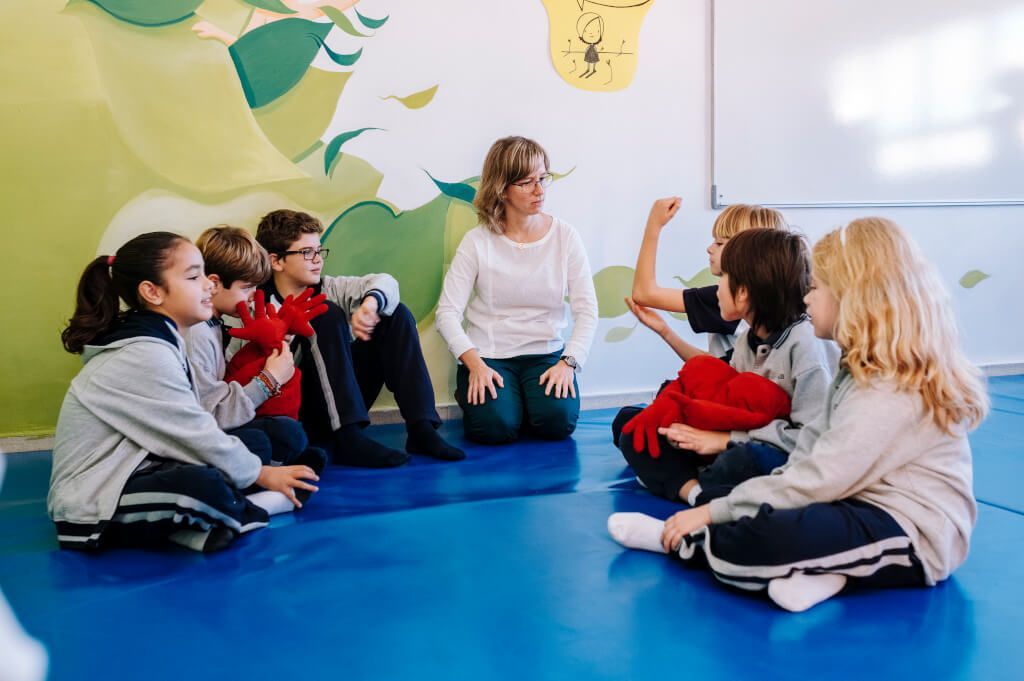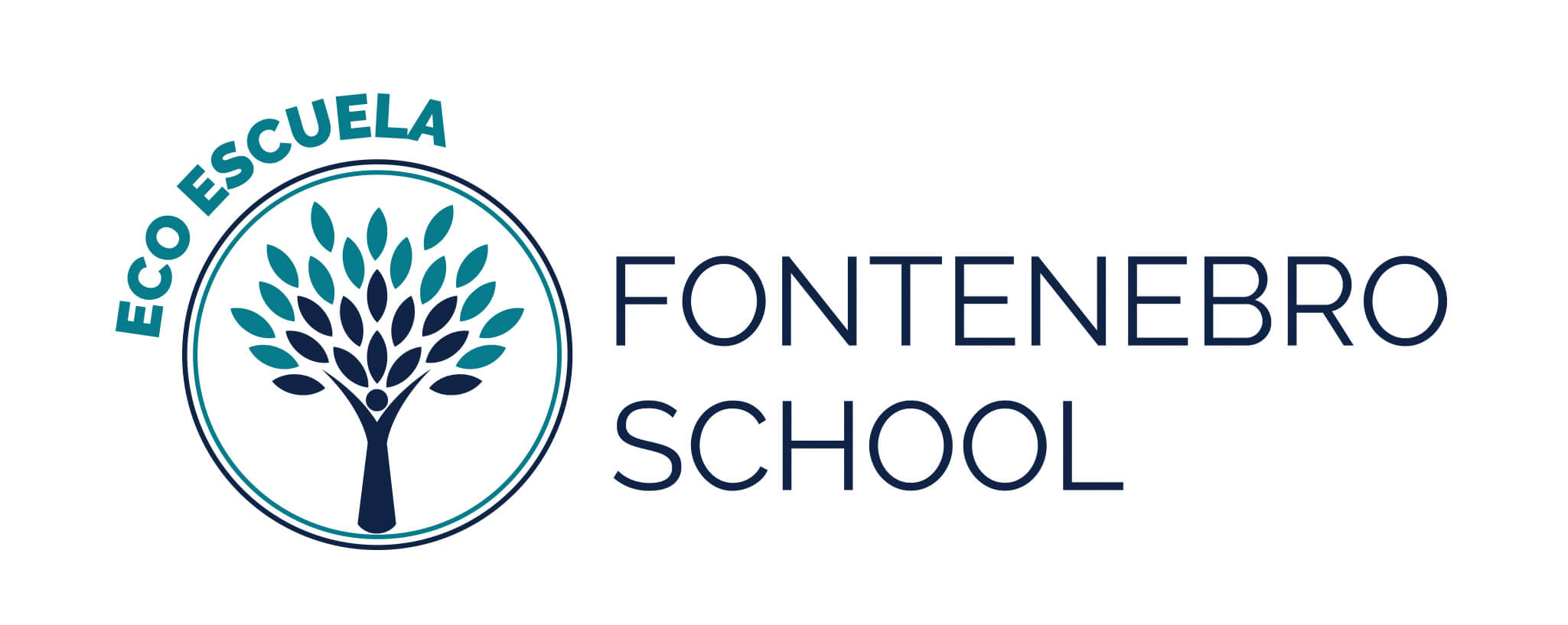Emotional intelligence activities for children
Emotional intelligence has become a key concept for a child’s education. Emotional intelligence activities for elementary school children allow us to guide them in relation to the management and expression of emotions, a skill that will be key in their adult stage.
At Fontenebro International School we give special importance to the emotional intelligence of our students, especially during the infant and primary school years, the activities they carry out both in the classroom and at home, will be very important for a correct emotional formation.
What is emotional intelligence?
Emotions play a vital role in our routines. From an early age, the management of these emotions and the ability to communicate them correctly is what we call emotional intelligence.
Like other aspects of our personality and intelligence, emotional management can be learned and stimulated through practice. In this process, the ages between 0 and 11 years old are very important to understand the implication that emotions have in our lives and the importance of a correct emotional management.
How emotional intelligence is formed?
Emotional intelligence is a process that, like other intelligences, lasts a lifetime. Regarding its formation, we learn to transmit messages through our emotions since we are born, the cry of a baby is nothing more than an emotion expressed through a sob, the subsequent emotional education allows us to transmit our feelings in a more accurate way.
During the first years we must learn to identify our emotions. Emotional self-knowledge allows us to diagnose our moods and act accordingly.
Self-regulation is also a key process in our emotional development. In this case, we do not seek to hide the consequences of our feelings, but to encourage reflection, which allows us to make the right decisions.
The early formative years are also essential to encourage the emergence of positive feelings, which generate a daily motivation to face any challenge.
Finally, there is a social component in the management of emotional intelligence: empathy and understanding the emotions of others. An empathetic person will be a person capable of putting him/herself in the place of another individual, and making decisions based on common needs.
These qualities related to the management and expression of emotions are learned during the early years. At Fontenebro International School we help our students to make emotional decisions that are positive for their health and for their own development.
Activities to develop emotional intelligence in children
Encouraging emotional intelligence through games and activities should be part of their education. These are some activities aimed at improving emotional intelligence in children, during kindergarten and primary school.
Images that express emotions
Creating an album with images that express emotions is very useful, because they perceive this type of expressions as something common. You can use pictures of them, in which they appear angry, happy, fearful, surprised, etc., and add other images in which their favorite characters appear.
Emotional stories
Through stories, they can learn to manage their emotions. Children’s literature helps them grow, many of these stories are based on emotions and the ways in which we express them, so the stories that focus on emotions are the best example for children.
Theater and puppets
In cases where a child finds it difficult to express his emotions, puppet play can be very useful, because he can express what he feels through other characters. It is important that the child does not feel self-conscious and can express himself in an environment based on trust.
Painting emotions
Painting is also a very effective way to express emotional situations that they cannot express through other languages. Painting-based activities can focus on the way they are feeling at a particular moment, allowing them to express themselves clearly through drawing.
Expression through mime
Expressing feelings through mime games facilitates emotional communication in real situations. We begin by proposing a series of emotions, which should be represented through expressions and movements, immediately he or she perceives this type of communication as something natural and necessary.
Emotional diary
The writing of an emotional diary also allows him or her to express emotions in a different way. In this case, we do not focus exclusively on the activities carried out during the day, but we record the emotions and feelings that the day has provoked in us.
Safe calm spaces
Creating a safe space at home means having a place where emotions are the protagonists. This corner allows us to resolve conflicts and to have a place where we can reflect and evaluate the emotions we have felt during the day.
Empathy games
Empathy games are based on activities in which we exchange roles. The adult poses situations that the child must solve, putting himself in other people’s shoes, so that he reflects from other points of view and begins to take into account other people’s feelings.
My virtues
At this age it is important that the child knows his virtues and knows how to strengthen them. The games in which they identify their virtues by writing them down or representing them with drawings, reinforce their self-esteem and are a positive reinforcement for the perception they have of themselves.
Tree of Happiness
Sometimes, children have emotional needs that may go unnoticed, the tree of happiness is an activity in which they can write those emotions that make them happy, the activities that motivate them and on the contrary, what makes them unhappy.
The importance of working on the emotional level at home
At Fontenebro International School we develop activities oriented to emotional management, however, it is important that families are also involved in this learning, and are part of the emotional education of the children, through activities that the child perceives as a means of regular expression.
Fontenebro International School supports Emotional Education
At Fontenebro International School we are aware of the importance of educating in emotions and for this Emotional Education is taught as a subject at all stages by specialized Psychologists, “your Emotions teachers”.
We are Certified by the Botín Foundation as a School committed to Emotional Education. The center has been part of the Network of Responsible Education Centers of the Botín Foundation since 2014. A program that favors the emotional, intellectual and social growth of students.
All educational stages complement their academic activity with a subject dedicated to Emotional Education. Promotes and encourages communication, conflict resolution, self-control, promotes self-esteem and confidence. It teaches respect, tolerance for the diversity of opinions and educates in universal values. The students also carry out breathing exercises, mindfulness, emotional intelligence, etc… To access this program, the Botín Foundation carried out an exhaustive selection phase among numerous schools. For more information: Bilingual Institute in Madrid North













![BAPParentLogo[5]](https://fontenebroschool.com/wp-content/uploads/2020/09/BAPParentLogo5.png)


